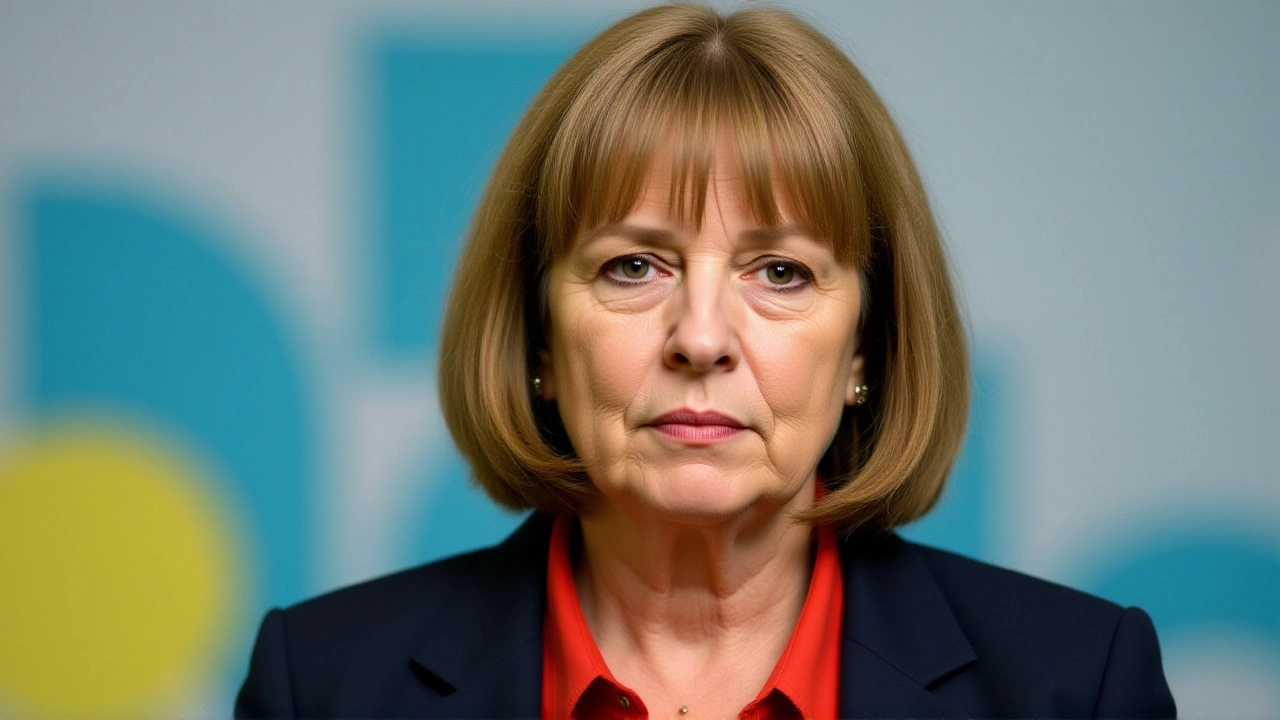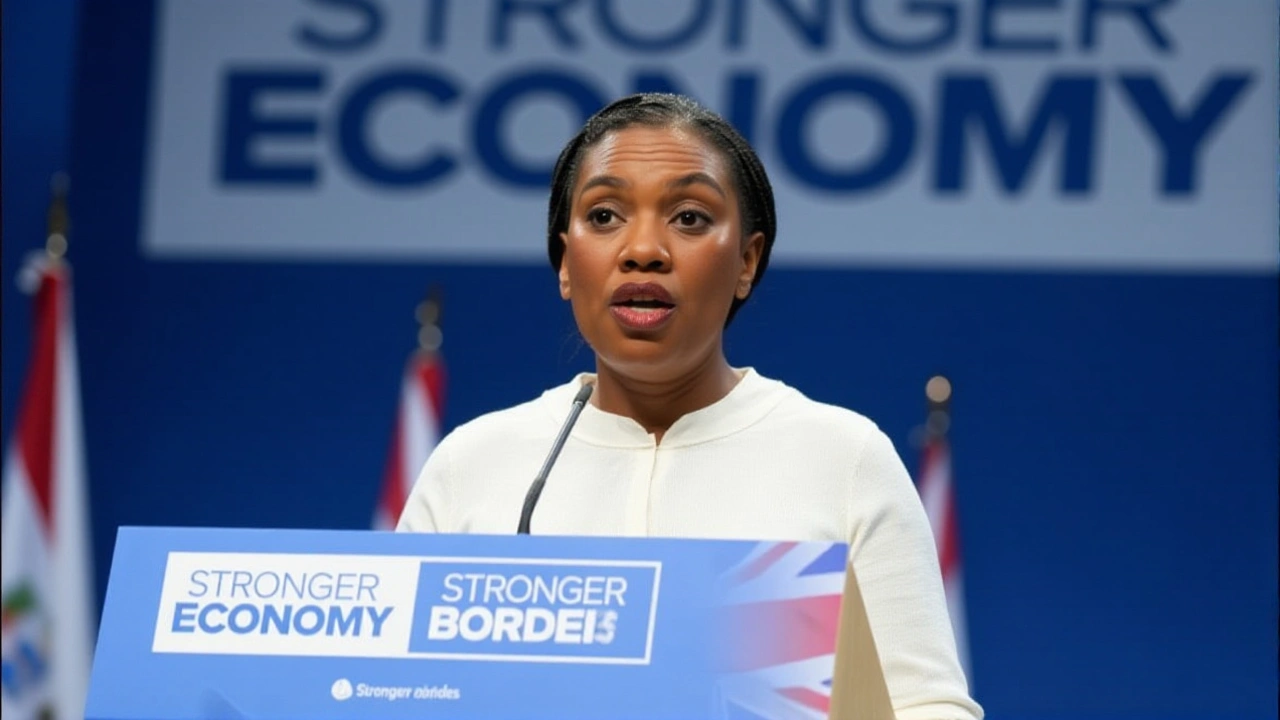When Kemi Badenoch stood up in the House of Commons on October 29, 2025, and told Prime Minister Keir Starmer to "get the axe" if Chancellor Rachel Reeves raises taxes, she didn’t just make a political threat—she lit a fuse under the Labour government’s credibility. The moment came during Prime Minister’s Questions, just weeks before the Autumn Budget 2025House of Commons, where Rachel Reeves is expected to announce tax increases to plug a £32 billion to £39 billion fiscal black hole. Starmer, who once swore Labour wouldn’t raise income tax, National Insurance, or VAT, now finds himself trapped between economic reality and a broken promise. And Badenoch? She’s not just pointing fingers. She’s demanding blood.
The Promise That Broke
Labour’s 2024 election manifesto was built on a simple, powerful promise: no tax rises. Starmer repeated it on TV, on doorsteps, in rallies. He even said "yes" to it in a July 2025 interview, as if the pledge were carved in stone. But by October 15, 2025, Reeves had stood before the Treasury Committee and admitted the truth: the books didn’t add up. The Office for Budget Responsibility had flagged collapsing productivity forecasts. Public spending was spiraling. The deficit wasn’t just growing—it was gaping. Suddenly, the vow looked less like principle and more like political fantasy.Badenoch’s Calculated Strike
Kemi Badenoch didn’t wait for the Budget to act. On October 29, she turned Starmer’s silence into a weapon. "He’s blaming us. He’s blaming the OBR. Last week, they were blaming Brexit," she said, her voice sharp with disdain. "Isn’t the truth that with this prime minister, it’s always someone else’s fault?" The line went viral. It wasn’t just a critique—it was a narrative shift. Where Labour had framed the deficit as inherited chaos, Badenoch recast it as mismanagement. And then came the bombshell: Nation.Cymru reported on October 30 that Badenoch plans to formally demand Starmer fire Reeves if tax hikes are announced on November 26.It’s a bold move. Removing a Chancellor mid-term is rare. But Badenoch isn’t playing for today’s headlines. She’s playing for the next election. If Reeves raises taxes, Labour loses its moral high ground. If Starmer backs down, he looks weak. Either way, the Conservatives win.
The Numbers Behind the Firestorm
The £32–39 billion shortfall isn’t abstract. It’s the difference between funding the NHS, schools, and pensions—or choosing just two. The OBR’s latest projections suggest UK productivity growth will fall to 0.7% this year—half the long-term average. That means less tax revenue, more borrowing. Reeves’ options? Raise income tax by 1–2%, increase National Insurance by 1.25%, or hike VAT from 20% to 21%. All are politically toxic. But not raising them means deeper cuts to public services—or more debt. And debt, as the Bank of England warned in September, is now 99% of GDP—the highest since 1961.Labour’s left wing is already murmuring. Backbenchers like Diane Abbott and Richard Burgon have privately told allies they’ll vote against any tax increase. Meanwhile, voters who turned out for Labour in 2024 because they trusted its fiscal discipline are now confused. A YouGov poll on October 25 showed 58% of Labour supporters believe raising taxes would be a betrayal—up from 39% in May.

What Happens If Reeves Raises Taxes?
If Reeves goes ahead, Badenoch will have her moment. She’ll rise in Parliament and say: "I told you so." She’ll call for an immediate vote of no confidence in Reeves. She’ll pressure Conservative MPs to table a motion demanding her resignation. Starmer would then face a choice: lose his Chancellor—or lose his party’s unity. Either way, Labour’s majority—already down to just 17 seats—is at risk. By-elections in traditionally Labour areas like Barnsley and Stoke-on-Trent South could turn into referendums on tax.But here’s the twist: if Reeves doesn’t raise taxes, the deficit keeps growing. The OBR may downgrade the UK’s credit rating next year. Borrowing costs could spike. And then, the pain comes later—through deeper cuts, inflation, or both.
Why This Matters Beyond Westminster
This isn’t just about politicians. It’s about families. A 1% rise in National Insurance means £120 less a year for someone earning £35,000. A VAT hike hits groceries, energy bills, childcare. For retirees on fixed incomes, it’s a direct hit. And for small businesses? They’re already reeling from energy costs and staffing shortages. Another tax increase could be the straw that breaks the camel’s back.Meanwhile, the Bank of England is watching. If markets believe Labour is fiscally irresponsible, bond yields could climb. That means higher mortgage rates. More people struggling to pay their homes. The ripple effect isn’t theoretical. It’s in the bank statements of millions.

What’s Next?
The next 30 days are critical. The OBR will release its pre-Budget report on November 19. That’s when the exact size of the deficit—and the scale of necessary tax changes—will be public. Starmer has said he’ll make his decision "in the national interest." But what does that mean? Will he sacrifice his manifesto for stability? Or cling to a promise that no longer fits reality?One thing’s certain: November 26 won’t just be a Budget day. It’ll be a turning point. For Reeves. For Starmer. For Britain’s economic future.
Frequently Asked Questions
Why is Kemi Badenoch demanding Rachel Reeves be fired?
Badenoch sees Reeves’ potential tax hikes as a betrayal of Labour’s 2024 election promise and a sign of poor fiscal leadership. By demanding her dismissal, she aims to fracture Labour’s unity, shift public blame away from Brexit or inherited problems, and position the Conservatives as the party of fiscal discipline ahead of the next general election.
How much could taxes rise in the November 2025 Budget?
Analysts estimate income tax could rise by 1–2%, National Insurance by 1.25%, or VAT could increase from 20% to 21%. Even a 1% income tax hike would cost a median earner around £300 annually. The Office for Budget Responsibility warns that without tax increases, public services face cuts of up to £15 billion.
What does this mean for Labour voters?
A YouGov poll from October 25 found 58% of Labour supporters believe tax hikes would break a core promise. Many traditional voters, especially in working-class areas, feel betrayed. This could lead to voter apathy or defections in upcoming by-elections, threatening Labour’s slim parliamentary majority.
Is this the first time a UK Chancellor has faced calls to resign over tax policy?
Yes—though rarely so publicly. In 2010, Alistair Darling faced backlash over VAT increases, but no one called for his sacking. In 1993, Norman Lamont was forced out after Black Wednesday, but not directly over tax hikes. Badenoch’s demand is unusually direct and politically aggressive, reflecting the depth of today’s fiscal crisis and the fragility of Labour’s mandate.
Could the UK avoid tax hikes altogether?
Theoretically, yes—but only by slashing public spending by £30–40 billion, which would mean closing hospitals, cutting school budgets, and reducing welfare. The OBR says that’s politically and socially unsustainable. Alternatively, the government could borrow more, but with debt at 99% of GDP and interest rates still elevated, that risks triggering a market crisis.
How is the public reacting so far?
Public opinion is divided. A Guardian/Ipsos poll showed 42% support tax rises to protect public services, while 51% oppose them. But support jumps to 63% among those who believe the government has hidden the true scale of the deficit. Trust in politicians is at a historic low—only 29% say they believe what ministers say about the economy.

